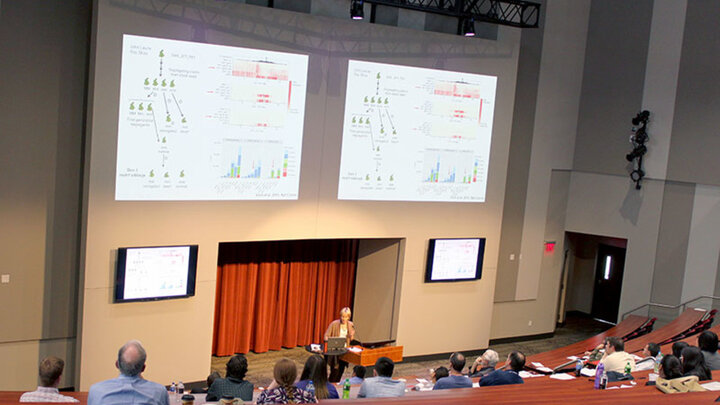Plant breeding symposium is March 14

The Department of Agronomy and Horticulture invites scientists, researchers, plant breeders, genomicists and students from across the nation to the Nebraska Plant Breeding Symposium from 8:30 a.m. to 4:30 p.m. March 14, at the Nebraska Innovation Campus Conference Center.
The event is part of the DuPont Plant Science Symposium Series initiated in 2008, spanning multiple universities. The theme of the 2017 Nebraska symposium is “New Frontiers in Plant Breeding -- Genomics and Beyond” with goals to enhance agricultural scientific literacy, stimulate collaboration and help build interest in plant breeding careers.
This event is free and open to the public. Attendees will enjoy a free, catered lunch.
The symposium is organized by a committee of graduate students from the Department of Agronomy and Horticulture and faculty adviser David Hyten, Haskins Professor in Plant Genetics and associate professor of soybean genetics and genomics.
The symposium organizing committee has gathered highly recognized, nation-wide experts to speak on plant breeding and genomics including:
-
Robin C. Buell, Michigan State University, “Genome biology of wild and cultivated potato”
-
John Doebley, University of Wisconsin-Madison, “Genetics of maize domestication: low hanging fruit and dark matter”
-
Reka Howard, University of Nebraska–Lincoln, “Advancements in genomic prediction”
-
Andrew H. Paterson, University of Georgia, “Toward production systems incorporating ratooning/perennial grain crops”
-
Frank Technow, DuPont Pioneer, “Going beyond statistics—the case for biological whole genome prediction models”
Cash prizes will be awarded to the top four student oral presentations and top three poster presentations.
Click here to register for the event and submit a poster presentation abstract. The deadline is Feb. 24.
Click here for the live webinar.
Funding for this symposium is provided by DuPont Pioneer, the University of Nebraska-Lincoln Department of Agronomy and Horticulture and the Agricultural Research Division and the Dermot P. Coyne Distinguished Lectureship fund.
